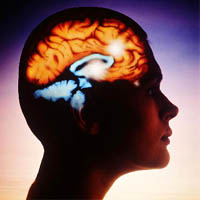Dysarthria - Violation of Word Pronunciation. The main cause of it is the defeat of the brain sites, the main manifestation - incense. Several types of dysarthritia, depending on which section of the brain is amazed. Read more about them in the article.
Content
Dysarthri. The word angular, you can even say, ominous. This word came from Greece: DIS - a prefix, meaning a disorder + arthro - a megrastial pronounce. It turns out dysarthria - pronunciation disorder.
Sembling and directed by our speech makes an articulation apparatus. This apparatus includes such organs as larynx, voice ligaments, naturally tongue and lips, solid and soft sky, nasopharynacle and jaws. Oh yes, still teeth.
In order for this device to work, he needs to give the relevant command. Who gives the team? Brain. And who is a messenger carrying a brain order? The central nervous system, respectively, by nerves, which in turn consist of a beam of nerve fibers. If there is no normal speech, then the problem may be anywhere in this chain.
 If the pickerel brain department is amazed, then the brain is not able to give clear and clear orders. And how so here the articulation apparatus is turned out? So gives out that «Ordered». This type of dysarthria is called subcortex dysarthria. It occurs when subcortical knots and their nervous bonds are amazed.
If the pickerel brain department is amazed, then the brain is not able to give clear and clear orders. And how so here the articulation apparatus is turned out? So gives out that «Ordered». This type of dysarthria is called subcortex dysarthria. It occurs when subcortical knots and their nervous bonds are amazed.
The defeat of the cerebral bark departments leads to the development of cortical dysarthria. Various brain cortex departments control the work of the muscles that participate in pronunciation. And if the muscles of the lips, language or jaw work badly, then the words do not work. Accordingly, the syllables pronunciation of the syllables are distinguished at the cortical dysarthria, although the total structure of the word is preserved.
With damage to the cerebellum there is a cerebellery dysarthria. The defeat can touch up not only the cerebellum itself, but also the ways connecting it with other brain departments. You can recognize such a dysarthria by the nature of speech. It resembles chanting, stretched chanting. Constantly changing volume and impaired sound modulation (change of sound height) are also an accent of cerebellar dysarthria.
Bulbar dysarthri. Word «Bulbar» Comes from Greek Buulbaris, that is, the bulb, on which the oblong brain is like. This type of dysarthria is accompanied by a paralysis of the muscles. Paralyzed muscles that participate in the process of sound pronunciation (articulation). This is because the defeat touched on individual nerves. With this form of dysarthria, there are problems with swallowing.
If a person has pronounced monotonous speech, then it is possible that this manifestation of pseudobulbar dysarthria. Prefix «pseudo» also greek origin and means false. With pseudobulbar dysarthria, the problem is in the fibers coming from the cortex of the brain to the oblong brain. If both hemispheres of the brain are amazed, and the motor cells in the trunk act, they develop speech disorders, very similar to bulbar. But since the reason in the other, such dysarthria and got the name pseudobulbar.
Extrapyramidal dysarthria occurs when a system involved in the regulation of coordination of movements and muscle tone fails. This is not the most common form of dysarthria.
Further can be called Parkinsonic and Cold Dysaryry. The first one is understandable from the title, is observed in Parkinson's disease. The second is a symptom for miastic (rapid fatigue of certain muscles). These types of dysarthria pass when the main disease is heduced.
There is also an erased dysarthria, external signs of the erased dimarthria are quite expressive. A human speech is a lubricated, deaf, as if in the nose. It makes a feeling that it erased. This form of dysarthria is most often found in children.









